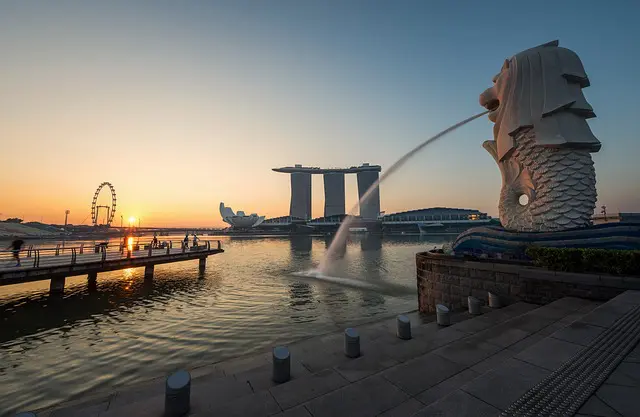In many cities, the COVID-19 pandemic has now passed. There are still outbreaks, along with concerns and worries, but generally people are less concerned about it than two years ago.
As a result of this once-in-a-lifetime medical crisis, countries and cities have responded differently. Those with the best resources as well as those who took a far-sighted strategic view and planned for a post-COVID-19 world, emerged stronger and ahead of their competitors.
According to The Economist, the cities that are flourishing in the current “turbulent geopolitical era” are ranked based on their economic performance over the last three years. After Miami, USA, Singapore ranked second, ahead of Dubai.
Using four criteria, population, economic growth, office vacancies, and house prices, the venerable British publication compared ten cities based on how they responded to global pandemics and geopolitical uncertainty over the last three years. In order to calculate the overall score, each city was ranked according to its performance on the measures.
According to the study, New York ranked fourth, followed by London, Tokyo, Sydney, Johannesburg, Paris, and San Francisco.
Between 2019 and 2022, Miami’s population declined by 1.6%, real GDP grew by 10.6%, office vacancy rates increased by 2.3%, and real house prices jumped by 39.5%.
In Singapore, the population shrank by 1.2%, real GDP increased 6.9%, the office vacancy rate increased by 1.4%, and housing prices rose by 10.9%.
Despite a 5.8% increase in population, Dubai’s real GDP contracted by 1.9%, office vacancies were reduced by 3.0%, and housing prices increased by 11.9%.
As a result of the above indicators, Hong Kong, Singapore’s perennial rival financial centre, fared worse than Singapore, which adopted stricter COVID-19 policies and only allowed quarantine-free travel last September (about 6 months after Singapore). The Economist study did not include Hong Kong.
Hong Kong’s GDP fell by about one percent between 2019 and 2022 to USD359.8 billion, according to World Bank data. According to Hong Kong government figures, its population declined by about 2.3 percent from 7.50 million to about 7.33 million. Expats from the special administrative region of China have left for cities with less strict COVID rules such as Dubai and Singapore.
Due to fewer residents, office vacancies rose and residential property prices dropped.
A recent report from Savills indicates that Hong Kong Grade A office rents fell 7.6% for the full year 2022, which is now 31.4% below their peak. According to the report, vacancies also increased to 10.4 percent from 9.9 percent a year ago, with 6.6 million square feet net vacant at the end of 2022.
Residential property is also experiencing a decline in value. Hong Kong’s residential property prices have plunged to a near five-year low due to the large number of expat workers leaving the former British colony. It is unlikely that this trend will end anytime soon, according to industry analysts.
When compared with Hong Kong, Singapore’s COVID lockdown was tighter than Dubai and most Western countries.
The Singaporean response to the COVID-19 pandemic has been widely regarded as effective. Prior to COVID, Singapore had already developed a strong healthcare system. As the pandemic struck, the widespread and rapid deployment of screening centers and contact tracing resulted in the virus being contained. Vaccination campaigns were launched nationwide in order to finally control the virus’ spread.
In addition to closely monitoring vaccine development, Singapore’s health authorities were among the first in the world to place large orders for mRNA vaccines.
Singapore invested in digital technology, training, and future-proofed its economy during the period when the borders were closed and economic activity slowed, preparing it for the day when the world reopened. Additionally, it provided grants to companies for training and incentives for them to retain their employees, so they would not have to lay off employees.
Due to the carrier’s ability to keep most of its fleet and workers, Singapore Airlines was able to benefit from the pent-up demand for travel, resulting in record profits.
In some cases, Dubai and Miami, which did not go overboard with restrictions, benefited during the COVID-19 pandemic, according to the Economist report.
Miami suffered at the expense of San Francisco, which came 10th in The Economist report and saw its population decrease by 8.3 percent and its office vacancies increase by almost 20 percent. In Asia, Singapore and Dubai benefited at the expense of Hong Kong. In times of geopolitical tensions, being neutral also helped.
Also Read:

1 Comment